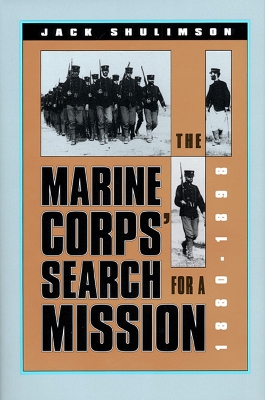Modern War Studies
1 total work
The Marine Corps - the elite fighting force in America's military - has not always been highly regarded. As Jacki Shulimson shows, only a century ago the Corps' identity and existence were much in question. Although the Marines were formally established by Congress in 1798 and subsequently distinguished themselves fighting on the Barbary Coast, their essential mission and identity remained unclear throughout most of the 19th century. But amid the cross-currents of industrialisation, technological change, professionalisation and reform that emerged in ""Gilded Age America"", the Corps underwent a gradual transformation that ultimately secured its significant and enduring military role. In this study, Shulimson argues that the Marine Corps officers' inextricable ties to the Navy both hampered and aided their attempt to define their own special jurisdiction and professional identity. Often treated like a poor relation, the Marine officers frequently found themselves in direct competition with their counterparts in the Navy and at times the object of the latter's scorn. Shulimson reveals the processes, politics and personalities that converged to create these tense and sometimes embattled relations, but he goes on to show how marine officers (with the Navy's blessing) eventually transcended their second-class role.
